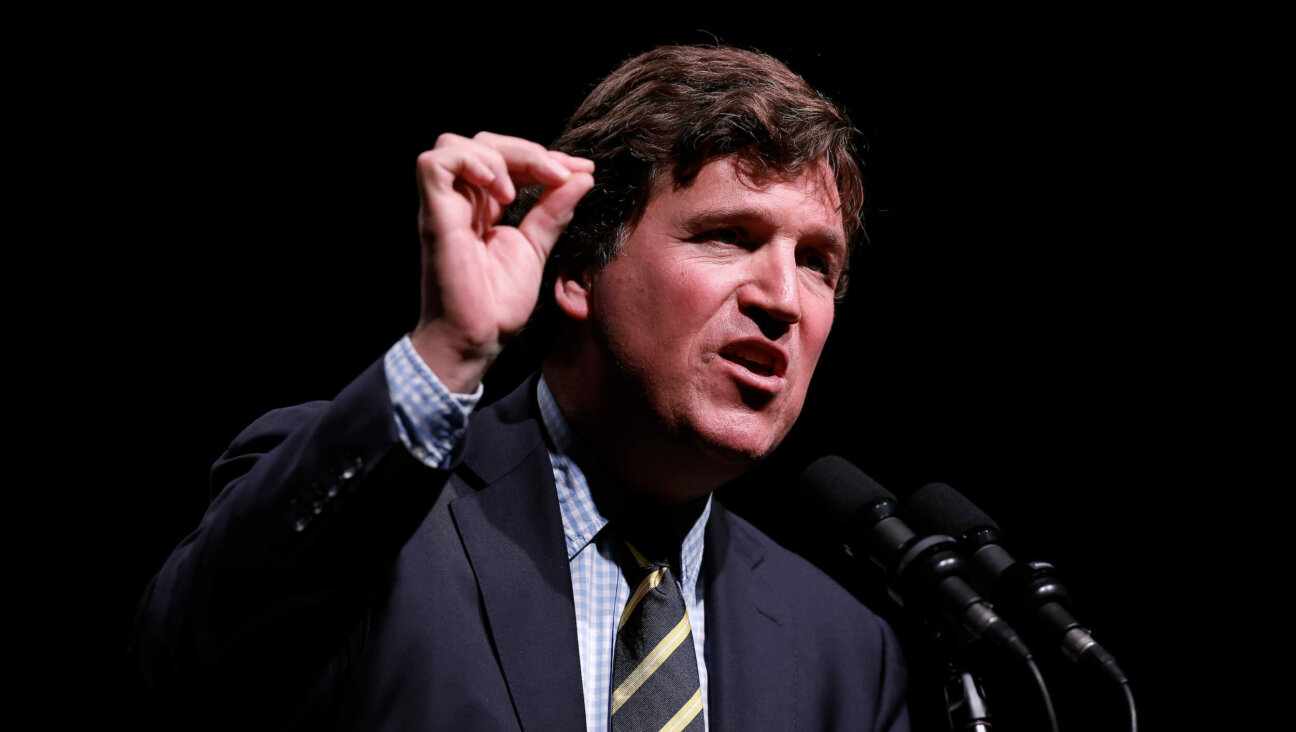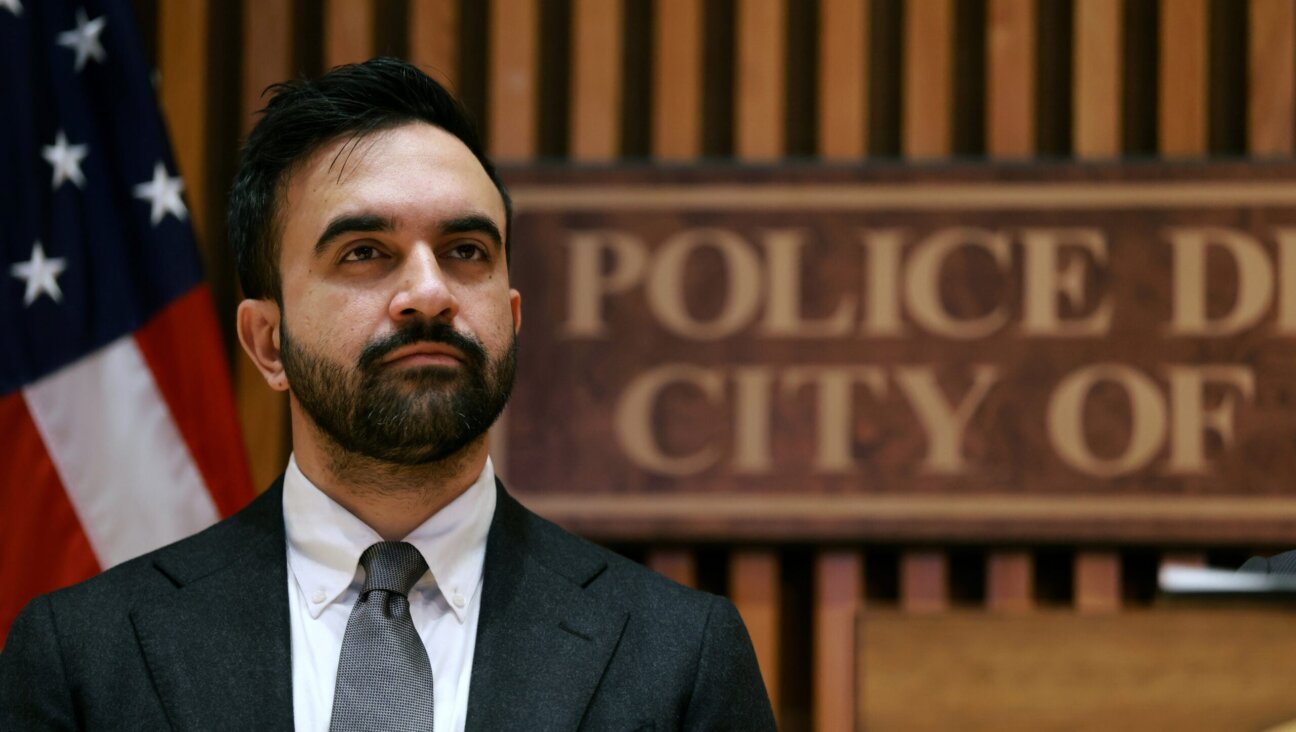Dominique Strauss-Kahn Says Didn’t Know Bunga Bunga Women Were Hookers

Graphic by Angelie Zaslavsky
(Reuters) — Dominique Strauss-Kahn did not know the women at “festive and playful” sex parties he attended were prostitutes, he told a French court on Tuesday, saying that would have been too risky given his then-role as head of the IMF.
Strauss-Kahn, 65, is accused of instigating about a dozen parties he knew involved prostitutes between 2008-2011 in the northern French city of Lille, Washington, Brussels and Paris.
Speaking in a calm, confident voice and wearing a sober black suit, he acknowledged his fondness for “libertine” parties with a small group of friends who at times invited him to join “a lunch or something more festive and playful” in Paris.
He never organized the parties nor asked others to organize them, and would not have attended had he known the women were prostitutes, Strauss-Kahn said, expressing a “horror for paid sexual relations.”
“It would be really too dangerous” to consort with prostitutes given his elevated position at the International Monetary Fund and their susceptibility to pressure from police and pimps, he said.
The question of whether or not Strauss-Kahn knew the women were prostitutes and who organized the parties is central to the three-week trial, in which he is charged with “procuring with aggravating circumstances,” or pimping.
Strauss-Kahn downplayed the frequency of the parties, and cast them as casual meetings between like-minded people.
“When you read the criminal complaint you get the impression it was this frenetic activity,” said Strauss-Kahn. “But it was four times a year, not more than that. It wasn’t this out-of-control activity that the complaint suggests.”
Strauss-Kahn was tipped to become French president before being accused of sexual assault by a New York hotel chambermaid in 2011. U.S. criminal charges were dropped, with allegations that he participated in a French sex ring emerging later.
Earlier in the day, three topless protesters from the FEMEN group, their chests and torsos painted with slogans, threw themselves on Strauss-Kahn’s car as it arrived at court.
A woman who testified that she was hired to have sexual relations with Strauss-Kahn at one of the evenings in Paris said he must have known he was dealing with prostitutes.
She described an encounter when she was left alone with Strauss-Kahn in a bedroom.
“There were activities … against nature. I wasn’t used to doing things of that nature,” said the woman, speaking softly and hesitantly. “It wasn’t violence, it was a relationship of force.”
Despite crying and gesturing to him that she was uncomfortable with the practice, she consented “because I really needed that money and I was scared maybe not to leave with it.”
“He was smiling from the beginning until the end.”
Strauss-Kahn, asked about her testimony, said he had not seen her crying and didn’t realize she was trying to say no.
PROCURING CHARGE
Strauss-Kahn, who says his political career is already over, could face 10 years in prison and a fine of up to 1.5 million euros ($1.72 million) if convicted.
Investigating magistrates who sent the matter to trial say the procuring charge applies because in France it covers any activity seen as facilitating prostitution. This could include the fact that the parties sometimes took place at Strauss-Kahn’s rented apartment and that they were expressly organized for him.
Because he did not pay the prostitutes himself, he is alleged to have received benefit in kind from prostitution.
Fourteen people in all, including Strauss-Kahn, are defendants in the “Carlton Affair” trial, so named after the hotel in Lille that sparked the investigation into a sex ring.
Strauss-Kahn, who was French finance minister in the late 1990s and headed the IMF from 2007, had been expected to run for French president in 2012 but withdrew after being accused of sexual assault by chambermaid Nafissatou Diallo.
That allowed Socialist Francois Hollande to come forward and beat conservative incumbent Nicolas Sarkozy.
After criminal charges were dropped, Strauss-Kahn settled civil proceedings brought against him by Diallo in New York.















